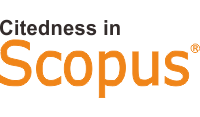KARAKTERISTIK KOMITE AUDIT DAN KETERLAMBATAN PENYAMPAIAN LAPORAN KEUANGAN
DOI:
https://doi.org/10.46870/milkiyah.v1i2.232Keywords:
Audit Committee Characteristic, Delay, Financial StatementsAbstract
The problem regarding the delay in submitting audited financial statements to companies in Indonesia occurred as stated by the Indonesia Stock Exchange (IDX). The purpose of this study is to test the effects of the independence of the audit committee, the number of audit committee meetings, the expertise of the audit committee on the delay in the company's annual financial statements. The method used in this study is quantitative which tests the relationship between variables. The research sample was 35 manufacturing companies in Indonesia. The results of this study prove that the independence of the audit committee, the number of audit committee meetings and the expertise of the audit committee can’t affect the delay in submitting financial statements. This is because the role of an independent audit committee as a mechanism of GCG has not been optimally implemented in implementing GCG principles, especially transparency and accountability. The number of audit committee meetings doesn’t affect the delay in the delivery of financial statements. This is because the audit committee was not able to make good use of the opportunity to meet with audit committee members to solve problems that existed in the process of preparing financial statements. The expertise of the audit committee doesn’t affect the delay in the delivery of financial statements where it is found that there is a lack of expertise from the audit committee, thereby slowing down the audit examination process.
REFERENCES
Abbas, A., & Syahadat, E. F. (2019). Pengantar Akuntansi Dasar. Pendekatan Praktis dan Aplikatif.
Akbar, F. N., & Kiswara, E. (2014). Efektivitas komite audit terhadap ketepatan waktu pelaporan keuangan. Diponegoro Journal of Accounting, Vol. 3, No. 2, 1–9.
Anggiani, S. (2011). Pengaruh karakteristik Komite audit dan mekanisme good corporate governance terhadap ketetapan waktu pelaporan keuangan. Universitas Islam Negeri Syarif Hidayatullah.
Anugrah, E. Y., & Laksito, H. (2017). Pengaruh efektivitas komite audit terhadap ketepatan waktu pelaporan (studi empiris pada perusahaan non keuangan terdaftar di BEI tahun 2015). Diponegoro Journal of Accounting, Vol. 6, No. 4, 1–13.
Bangsawan, A. A., & Abbas, A. (2022). Internal Control System and Audit Opinion: Case from South Sulawesi in Indonesia. JASa (Jurnal Akuntansi, Audit, dan Sistem Informasi Akuntansi), 6(1), 15-22.
Creswell, J. W. 2016. Research desing: Pendekatan kualitatif, kuantitatif, dan mixed (3rd ed.). Yogyakarta: Pustaka Pelajar.
Darmiari, N. P. D ., & Ulupui, I. G. K. A. (2014). Karakteristik perusahaan di Bursa Efek Indonesia, reputasi akuntan publik dan ketepatwaktuan pelaporan keuangan. E-Journal Akuntansi Universitas Udayana, Vol. 9, No. 1, 38-57.
Ghozali, I. (2011). Aplikasi analisis multivariate dengan program SPSS. Semarang: Badan Penerbit Universitas Diponegoro.
Felo, A. J., Krisnamurthy, S., & Solieri, S. A. (2003). Audit committee characteristics and the perceived quality of financial reporting: an empirical analysis. Working Paper Series: 1-40.
FCGI. (2000). Peranan dewan komisaris dan komite audit dalam pelaksanaan corporate governance (tata kelola perusahaan). Booklet Jilid II Ed. 2.
Gunawan, J. (2017). Analisis pengaruh karakteristik komite audit dan karakteristik perusahaan terhadap keterlambatan audit pada perusahaan yang terdaftar di Bursa Efek Indonesia.
Ghozali, I. (2011). Aplikasi analisis multivariate dengan program SPSS. Semarang: Badan Penerbit Universitas Diponegoro.
Gunarsa, I. G. A. C., & Putri, I. A. D. (2017). Pengaruh komite audit, independesi komite audit, dan profitabilitas terhadap audit report lag di perusahaan manufaktur. E-Journal Akuntansi Universitas Udayana, Vol. 20, No. 2, 1672-1703.
Ika, S. ., & Ghazali, N. A. (2012). Audit committee effectiveness and timeliness of reporting : Indonesia evidence. Managerial Auditing Journal, Vol. 27, No. 4, 403–424.
Ikatan Akuntan Indonesia. (2009). Standar Akuntansi Keuangan. Jakarta: Salemba Empat.
Imaniar, F. Q. & Kurnia. (2016). Faktor-faktor yang mempengaruhi ketepatan waktu pelaporan keuangan perusahaan. Jurnal Ilmu dan Riset Akuntansi, Vol. 5, No. 6, 1-18.
Peraturan No. X.K.6, Lampiran No. Kep-431/BL/2012 tentang penyampaian laporan tahunan emiten atau perusahaan.
Peraturan Nomor I-H tentang sanksi bagi perusahaan yang terlambat menyampaikan laporan keuangan.
Peraturan No. 55/POJK.04/2015 tentang pembentukan dan pedoman pelaksanaan kerja komite audit.
Prastowo, D. 2011. Analisis laporan keuangan : Konsep dan aplikasi. Yogyakarta: YKPN.
Purbasari, M., & Rahardja. (2014). Analisis pengaruh karakteristik komite audit dan profitabilitas terhadap timeliness laporan keuangan (studi empiris pada perusahaan manufaktur yang terdaftar di BEI). Diponegoro Journal of Accounting, Vol. 3, No. 3, 1-12.
Septriana, I. (2010). Analisis faktor-faktor yang berpengaruh terhadap ketepatan waktu pelaporan keuangan perusahaan BUMN di Indonesia. Jurnal MAKSI Universitas Dian Nuswantoro, Vo. 10, No. 1, 97-117.
Sugiyono. (2010). Metode penelitian bisnis. Bandung: CV. Alfabeta.
Suwardjono. (2014). Teori akuntansi: Perekayasaan pelaporan keuangan (3rd ed.). Yogyakarta: BPFE.
Widyaswari, K. R., & Suardana, K. A. (2014). Pengaruh karakteristik komite audit terhadap timeliness pelaporan keuangan: Perusahaan go public yang terdaftar di Bursa Efek Indonesia. E-Jurnal Akuntansi Universitas Udayana, Vol. 6, No. 1, 154-166.
Yadirichukwu, E., & Ebimobowei, A. (2013). Audit committee and timeliness of financial reports: empirical evidence from Nigeria. Journal of Economics and Sustainable Development, Vol. 4, No. 20, 14-26.
Downloads
Published
How to Cite
Issue
Section
License
Copyright (c) 2022 Milkiyah: Jurnal Hukum Ekonomi Syariah

This work is licensed under a Creative Commons Attribution-NonCommercial 4.0 International License.

















